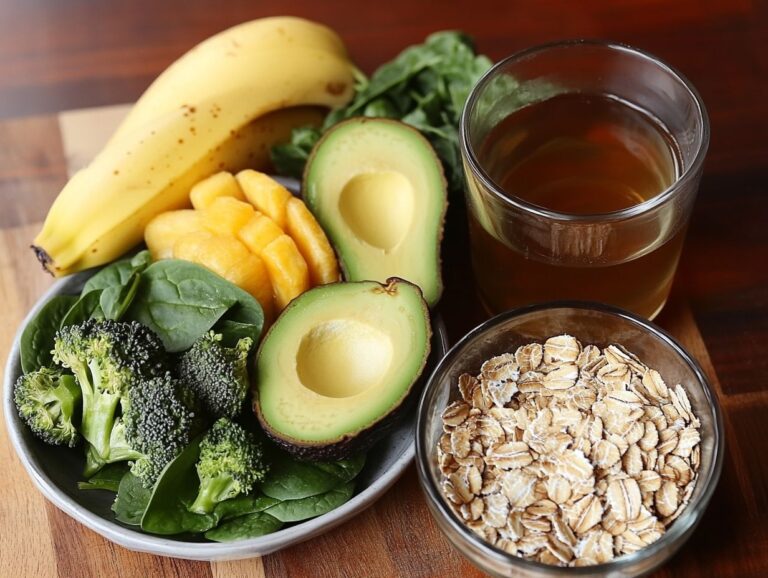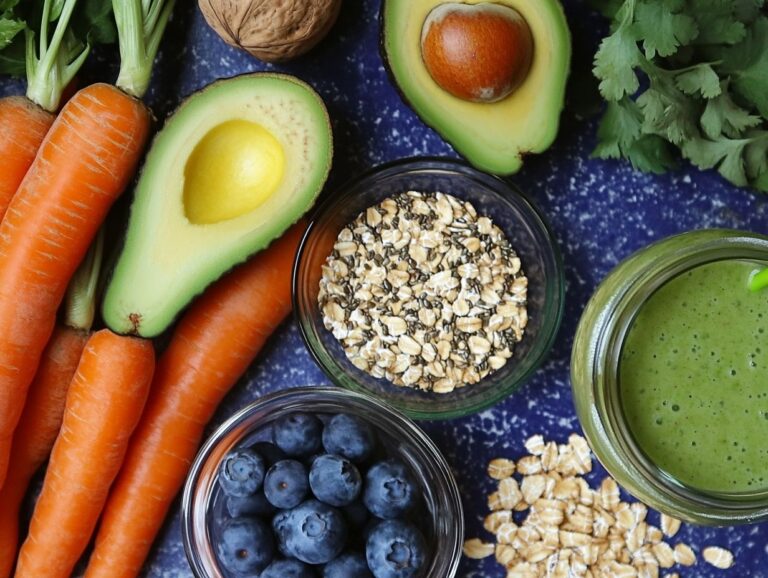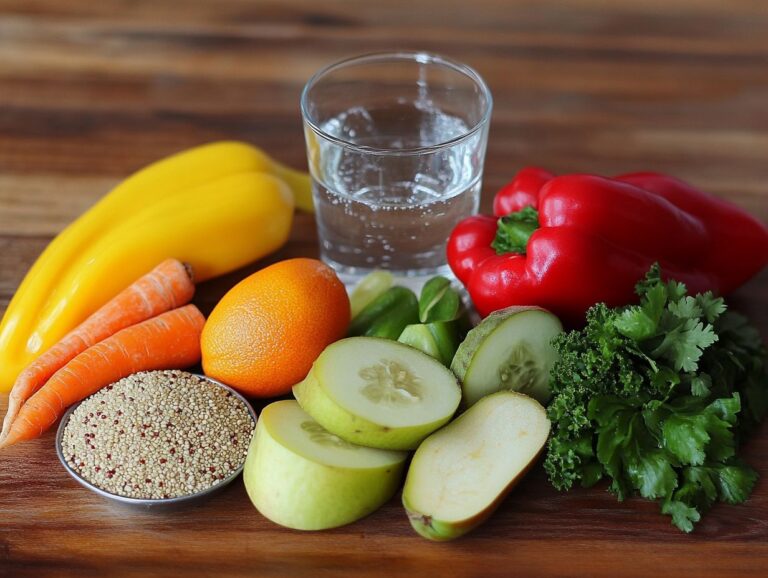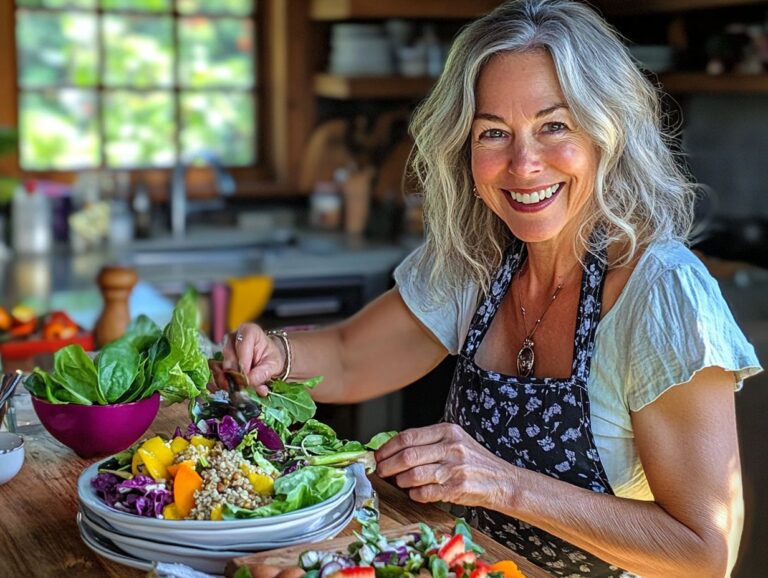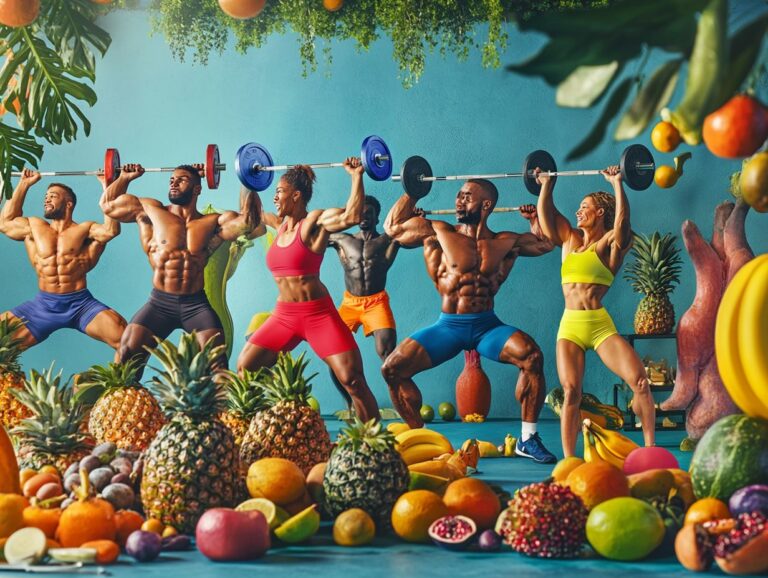As more people embrace veganism for health, environmental, or ethical reasons, understanding the nutritional needs of a plant-based lifestyle becomes crucial.
While a vegan diet can offer numerous benefits, it can also lead to deficiencies in essential vitamins typically found in animal products.
This article explores why those on a vegan diet may need to pay special attention to their vitamin intake, highlights the crucial vitamins for maintaining optimal health, and provides practical tips for incorporating these essential nutrients into a plant-based diet.
Discover how to ensure you’re getting the right vitamins to support your well-being and immune function on your vegan journey!
Why Do Vegans Need Vitamins?

Vegans require vitamins because their diets exclude animal products, which puts them at risk of nutritional deficiencies and inadequate intake of essential nutrients such as vitamin B12, vitamin D, iron, calcium, and omega-3 fatty acids.
To address these needs, individuals adopting a plant-based lifestyle should incorporate a variety of fortified foods, fruits and vegetables, and appropriate supplements.
Understanding these nutritional requirements is crucial for maintaining a healthy lifestyle and supporting immune function, especially for those who adhere to a strict vegan diet, including pregnant vegans.
1. Lack of Animal Products in Diet
A vegan diet, which excludes animal products, can lead to critical nutrient deficiencies, particularly in vitamin B12 and vitamin D, both of which are primarily found in animal foods. These deficiencies may result in debilitating health conditions, including fatigue, neurological deficits, osteomalacia, and osteoporosis, highlighting the importance of balanced nutrition.
While there is a widespread perception that a vegan lifestyle is healthy, it requires careful planning to ensure that all necessary nutrients are adequately provided.
Vegan sources of vitamin B12 include fortified plant milks and nutritional yeast, while sufficient exposure to sunlight and the consumption of fortified foods can help meet vitamin D requirements.
Furthermore, if individuals do not consume a diverse array of whole foods such as legumes, nuts, seeds, whole grains, and green leafy vegetables, they may not obtain the essential vitamins and minerals needed for optimal health.
2. Difficulty in Absorbing Nutrients
Vegans may face challenges in obtaining certain nutrients, which can lead to issues such as iron deficiency or weakened bones due to insufficient calcium sources and a lack of omega-3 fatty acids in their diets, necessitating careful attention to nutrient recommendations.
These difficulties can stem from the presence of phytates and oxalates in many plant foods, which inhibit the absorption of iron and calcium. For instance, while iron and calcium are often cited as being abundant in spinach and beans, their bioavailability may be low.
To enhance absorption, pairing these foods with vitamin C-rich options, such as citrus fruits or bell peppers, can significantly boost iron uptake.
Vegans can improve their understanding of dietary requirements by utilizing fortified foods and taking supplements if necessary, ensuring they receive adequate amounts of essential nutrients to maintain overall wellness.
What Are the Essential Vitamins for Vegans?
Vitamins that are particularly important for vegans include vitamin B12, vitamin D, calcium, iron, and omega-3 fatty acids. These nutrients are essential for a vegan diet to support overall health and well-being, particularly during pregnancy and breastfeeding.
Vegans must pay close attention to these vital nutrients to prevent deficiencies that can weaken the immune system, decrease energy levels, and negatively impact bone health.
To meet their dietary requirements and maintain a healthier lifestyle, vegans can incorporate a wide variety of plant-based foods, fortified products, and potentially supplements into their diets, ensuring balanced nutrition through diverse fruits and vegetables.
1. Vitamin B12
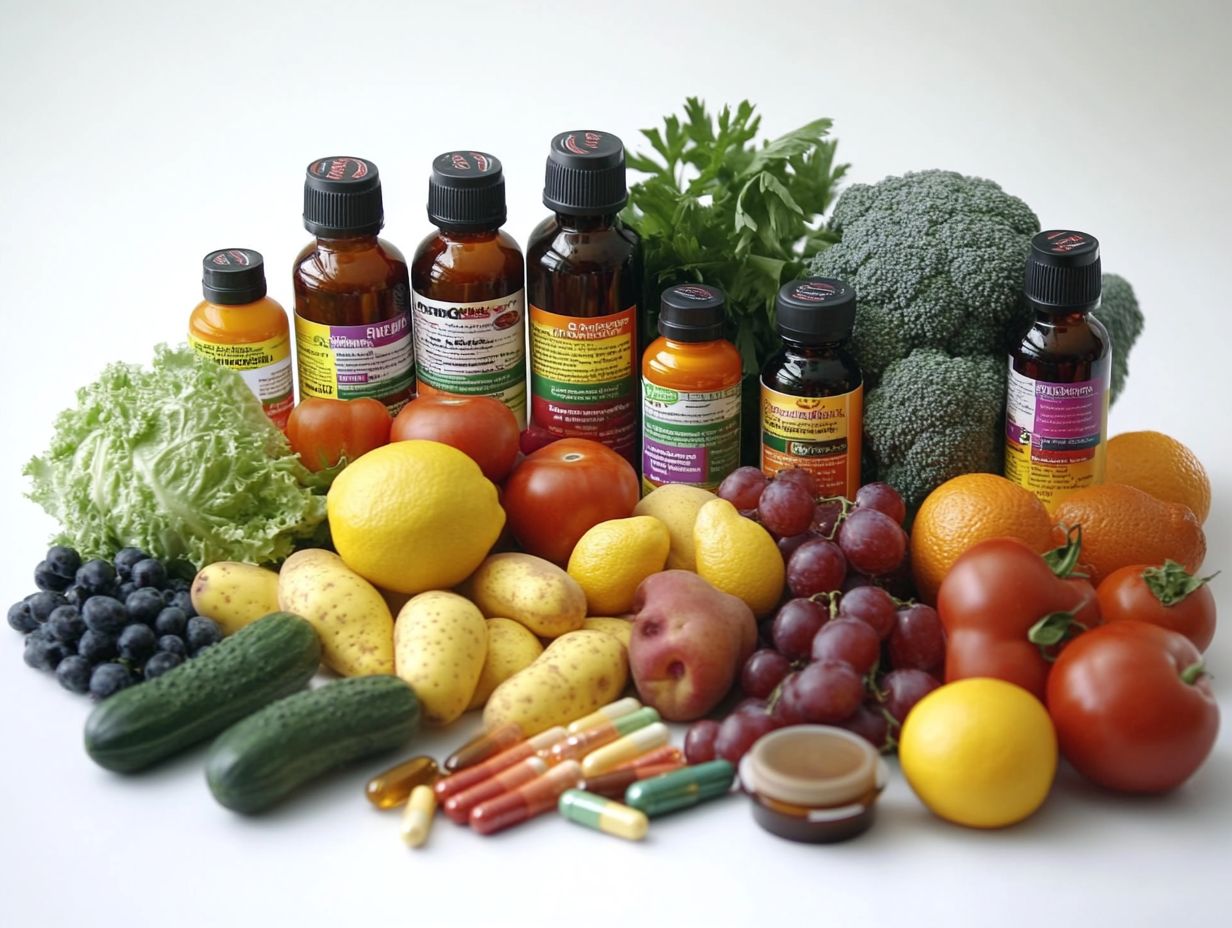
Vitamin B12 is an essential nutrient for vegans, as it is not present in plant foods, which puts them at risk of nutritional deficiencies and serious health issues.
This vitamin plays a crucial role in the formation of red blood cells, DNA synthesis, and proper nerve function. A deficiency in vitamin B12 can lead to fatigue, weakness, and neurological problems, making it vital for individuals following a vegan diet to monitor their B12 status.
To address this deficiency, people can incorporate fortified foods such as:
- Plant-based milks
- Breakfast cereals
- Nutritional yeast
that have been enriched with B12, or consider taking a daily supplement.
2. Vitamin D
Vitamin D is crucial for vegans, as it is primarily obtained through sun exposure and fortified foods. Therefore, they need to be mindful of ensuring they receive adequate amounts of this vitamin, as a deficiency can negatively impact bone health and immune function.
Vitamin D plays a significant role in various bodily functions, including calcium absorption and the modulation of immune responses. Vegan-friendly sources of vitamin D include fortified plant milks, which offer an easy way to maintain sufficient levels of this nutrient in daily meals.
Some individuals may opt to take vitamin D supplements, most commonly in the form of vitamin D2 or a vegan-friendly version of D3 derived from lichen, to help meet their dietary needs.
Since vitamin D is naturally produced in the body primarily through sun exposure, it is essential for vegans to strategize how and when to get adequate sunlight, taking geographical and seasonal factors into consideration. Low levels of vitamin D can lead to adverse health effects, such as brittle bones and an increased risk of infections.
3. Calcium
Calcium is essential for vegans to maintain healthy bones. While it is commonly associated with dairy products, there are numerous plant-based sources that can effectively meet calcium needs.
Adequate calcium intake is crucial not only for supporting bone density but also for various bodily functions, such as muscle contraction and nerve signaling. Vegans can choose from a diverse array of options, including leafy greens like kale and bok choy, which are excellent sources of this important mineral.
Fortified plant-based milks offer a convenient way to boost calcium levels, while legumes such as chickpeas and beans also contribute to overall dietary needs. Insufficient calcium intake can increase the risk of osteoporosis and impair bone health, making it important to incorporate these foods into the diet regularly.
To ensure optimal calcium consumption, it is advisable to combine these sources throughout the day, helping to create a well-rounded diet that supports long-term wellness.
4. Iron
Iron is an essential mineral for vegans, as its deficiency can lead to anemia. Therefore, it is crucial to consume iron-rich plant foods such as legumes, fruits, and fortified grains, often found in The Eatwell Guide for a balanced diet.
Iron plays a vital role in the production of hemoglobin, a protein in red blood cells that transports oxygen throughout the body. It is also important for the synthesis of collagen, hormones, and certain neurotransmitters, and it contributes to the body’s energy production.
Iron exists in two forms: heme and non-heme. Heme iron is found in animal products and is more easily absorbed by the body. In contrast, non-heme iron is present in plant-based foods and supplements but is not as readily absorbed.
Vegans can meet their iron requirements through various sources, such as:
- Lentils
- Chickpeas
- Certain types of quinoa (especially red or black)
- Dark leafy greens
To enhance iron absorption, it is beneficial to consume these foods alongside those rich in vitamin C, such as citrus fruits, bell peppers, or broccoli. This combination can significantly improve the absorption of non-heme iron.
5. Omega-3 Fatty Acids
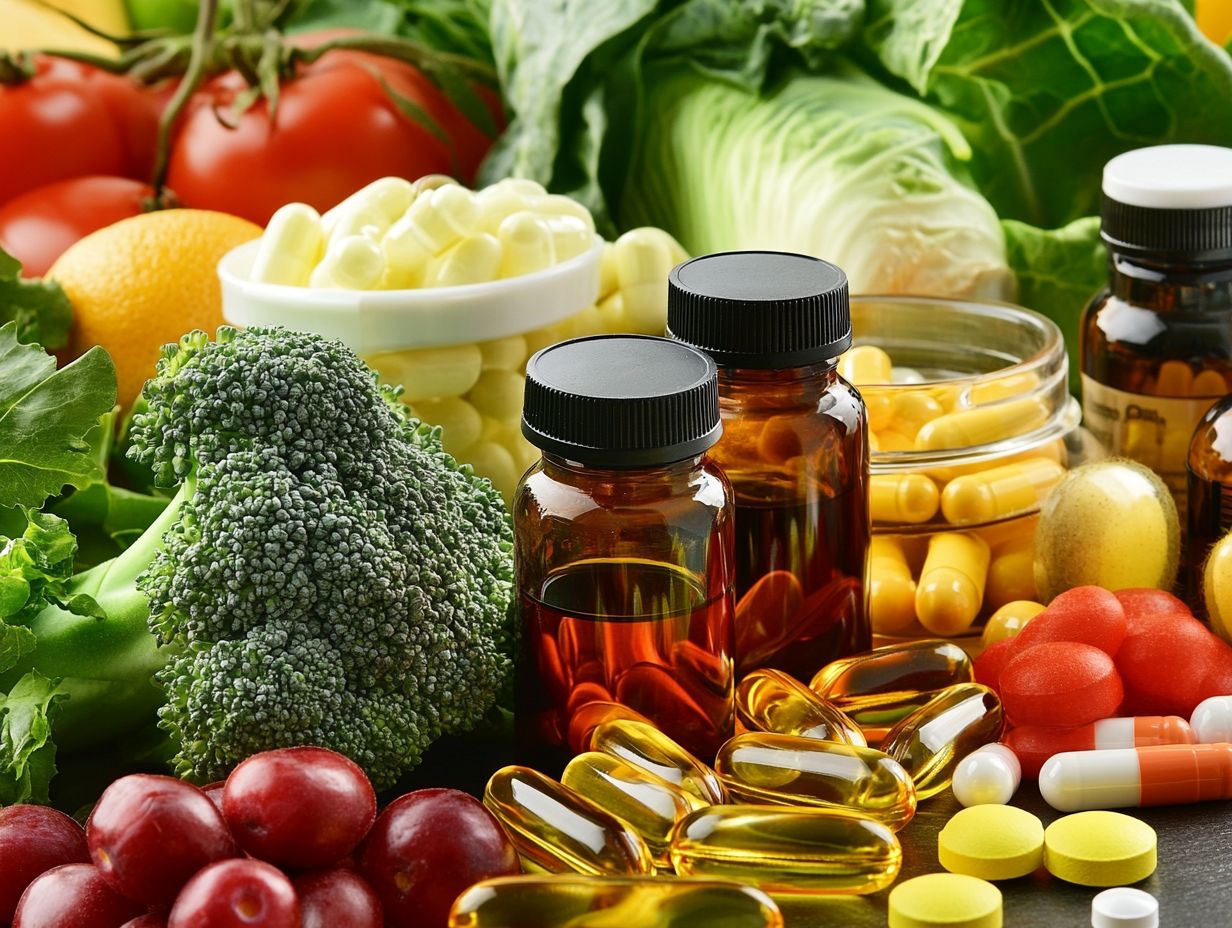
Omega-3 fatty acids are essential for vegans, as their primary sources are typically fish and seafood. Therefore, it is important for vegans to find plant-based sources such as nuts and seeds, or consider supplementation to ensure good health.
Omega-3 fatty acids are crucial fats that support heart health by reducing triglycerides and lowering bad cholesterol levels, which in turn decreases the risk of cardiovascular disease. They also play a significant role in cognitive function and memory, with the benefits of omega-3 fatty acids on cognitive performance being particularly notable during periods of rapid brain development and in the elderly, who may experience cognitive decline.
Additionally, omega-3 fatty acids possess anti-inflammatory properties that help alleviate symptoms associated with various chronic conditions.
Plant-based sources of omega-3s, such as flaxseeds and chia seeds, can help meet dietary requirements, while algae supplements provide a direct and effective source of these essential fatty acids without conflicting with vegan principles.
How to Get These Vitamins on a Vegan Diet?
Vegans can obtain essential vitamins by consuming fortified foods, such as plant-based milks and nutritional yeast, as well as by taking supplements to address any nutritional gaps in their diets.
1. Fortified Foods and Supplements
Fortified foods and supplements play a crucial role in providing essential nutrients for vegans, offering vitamins and minerals such as vitamin B12 and vitamin D that are often lacking in a strictly vegan diet. These products can enhance dietary intake and serve as a convenient option for individuals aiming to meet their daily nutritional requirements, particularly during pregnancy and breastfeeding.
For instance, plant milks, including almond, soy, and oat milk, are frequently fortified with calcium and vitamin D, making them excellent substitutes for dairy products and helping to ensure adequate intake of these nutrients. Additionally, cereals are often fortified with a variety of vitamins and minerals to support proper nutrition at breakfast.
Nutritional yeasts, which are typically fortified with several B vitamins, also have a cheesy flavor that many people enjoy.
While these fortified foods can significantly contribute to a balanced diet, some individuals may still prefer to use supplements to address specific dietary shortfalls, particularly for nutrients that are more challenging to obtain in sufficient amounts from diet alone.
2. Plant-based Sources of Nutrients
Plant-based sources of nutrients, including a diverse range of fruits, vegetables, legumes, nuts, and seeds, are essential for vegans to obtain the necessary vitamins and maintain a balanced diet. This variety of food types accommodates different palatability preferences and provides specific vitamins crucial for good health.
For instance, leafy green vegetables like spinach and kale are excellent sources of vitamin K, while citrus fruits such as oranges and grapefruits are rich in vitamin C. Legumes, such as lentils and chickpeas, supply a significant amount of B vitamins, particularly folate, which is vital for cell division and production.
Additionally, nuts and seeds, including almonds and chia seeds, offer healthy fats and vitamin E. Incorporating a wide range of foods is important for an overall healthy diet, as it ensures nutrient density and supports the delivery of essential vitamins and minerals to the body.
What Are the Risks of Vitamin Deficiencies in Vegans?
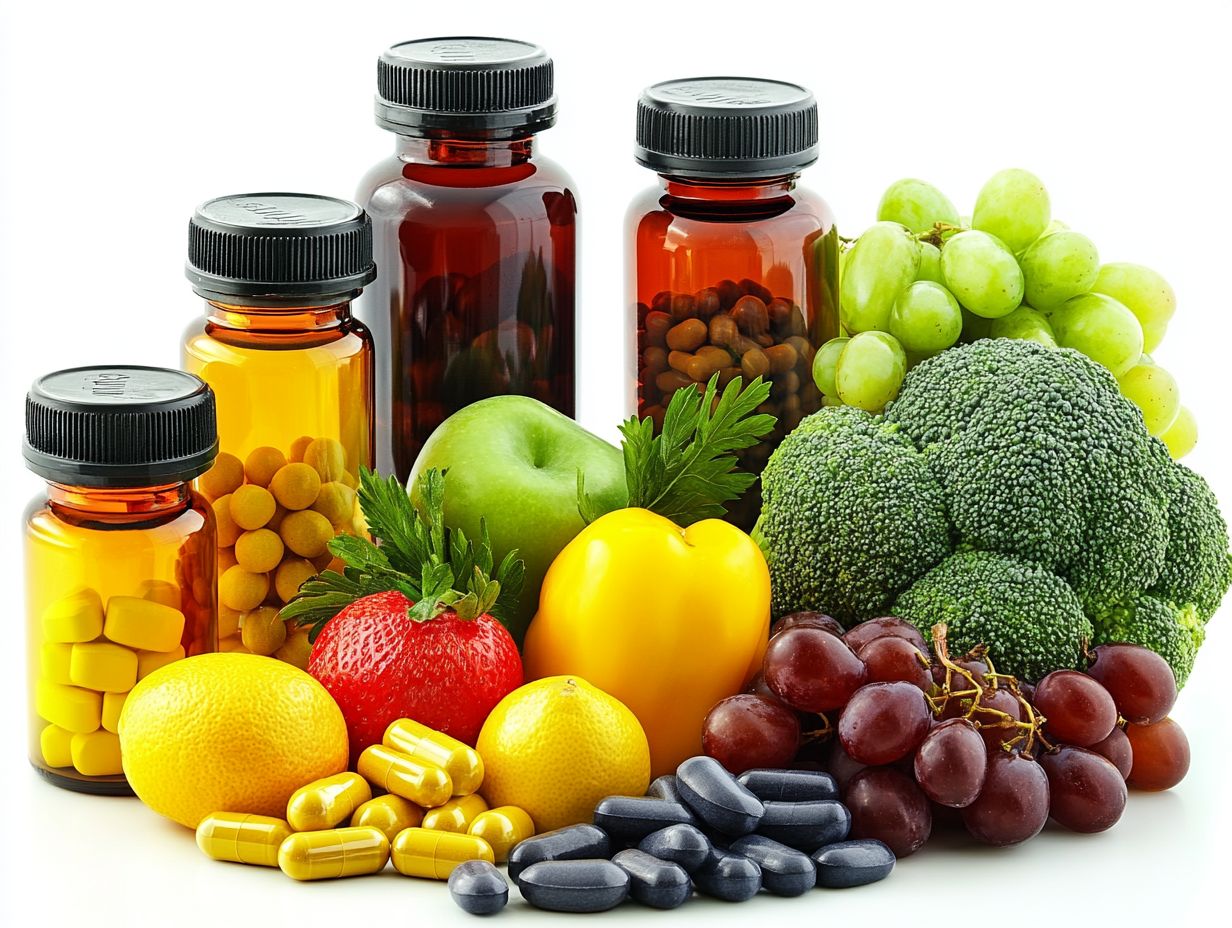
Vitamin deficiencies in vegans can pose several health risks, including anemia due to iron deficiency, weak bones resulting from a lack of calcium, and potential nerve damage or cognitive impairment caused by insufficient intake of vitamin B12 and vitamin D.
These health risks highlight the importance of maintaining a well-balanced diet that ensures all essential nutrients are included in a vegan lifestyle.
1. Anemia
Anemia is a common health risk for vegans, often resulting from iron deficiency, which can lead to fatigue, weakness, and decreased immune function. This condition occurs when the body lacks sufficient iron to produce hemoglobin, the protein responsible for carrying oxygen in red blood cells.
Unlike animal sources that contain heme iron— which is more easily absorbed—plant-based sources provide non-heme iron, which is less efficiently utilized by the body. As the deficiency progresses, symptoms such as pale skin, dizziness, and shortness of breath may also manifest.
To combat this, it is essential to incorporate iron-rich foods like:
- lentils
- beans
- fortified cereals
- leafy greens
Additionally, including vitamin C-rich foods can enhance iron absorption. Cooking with cast iron cookware can further help increase iron intake, enabling vegans to better support their overall health.
2. Weak Bones
Weak bones pose a significant risk for vegans, particularly due to potential deficiencies in calcium and vitamin D, which can lead to an increased risk of fractures and osteoporosis. These deficiencies may arise from a plant-based diet that lacks sufficient amounts of these essential micronutrients.
Calcium is vital for maintaining bone density, while vitamin D is critical for the absorption of calcium in the gut. Low levels of either nutrient can result in the gradual weakening of bones over time.
Therefore, it is essential for vegans to include fortified foods such as plant-based milks and cereals in their diet. They may also need to consider vitamin D supplements, especially if they live in areas with limited sunlight exposure.
Additionally, incorporating green leafy vegetables, almonds, tofu, and seeds can help improve calcium intake.
3. Nerve Damage
Nerve damage poses a health risk for vegans, primarily due to vitamin B12 deficiency. Symptoms of this deficiency may include numbness, tingling, and cognitive difficulties.
Vitamin B12 is essential for the health of the nervous system, as it plays a crucial role in the production of myelin, which is the protective sheath surrounding nerves. Insufficient intake of vitamin B12 can disrupt this process, increasing the risk of irreversible nerve damage over time.
Individuals lacking adequate levels of this vital nutrient may experience long-term effects, including chronic pain, difficulty coordinating movements, and even memory loss.
Therefore, it is essential for those on a vegan diet to be vigilant about their B12 intake, utilizing fortified foods or supplements to safeguard their neurological health.
4. Cognitive Impairment
Cognitive impairment can occur in vegans, particularly due to deficiencies in vitamin B12 and vitamin D, both of which are crucial for brain health and overall cognitive function.
These vitamins play a vital role in neurotransmitter synthesis and neuronal health, which are essential for maintaining sharp thinking and memory retention. Without adequate levels of these nutrients, individuals may experience significant mental fatigue and difficulties with concentration.
Therefore, it is increasingly important for those following a vegan diet to actively seek out reliable sources of vitamin B12 and vitamin D. Strategies to boost intake include:
- Consuming fortified foods
- Considering supplementation
- Including nutrient-rich plant-based options such as nutritional yeast and certain types of mushrooms
By prioritizing these practices, individuals can not only support their cognitive health but also enhance their overall well-being.
